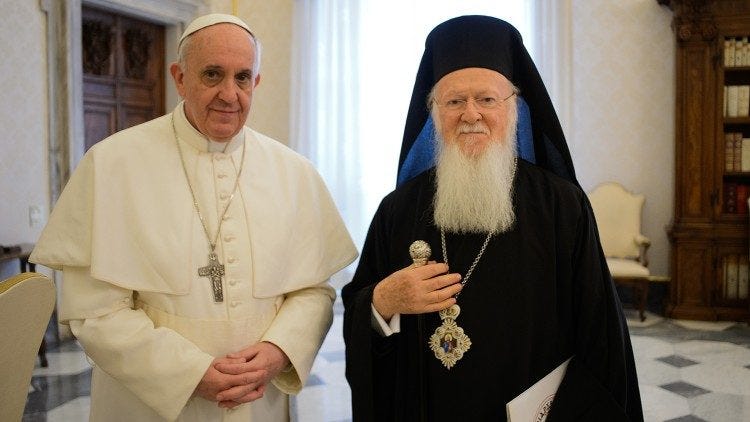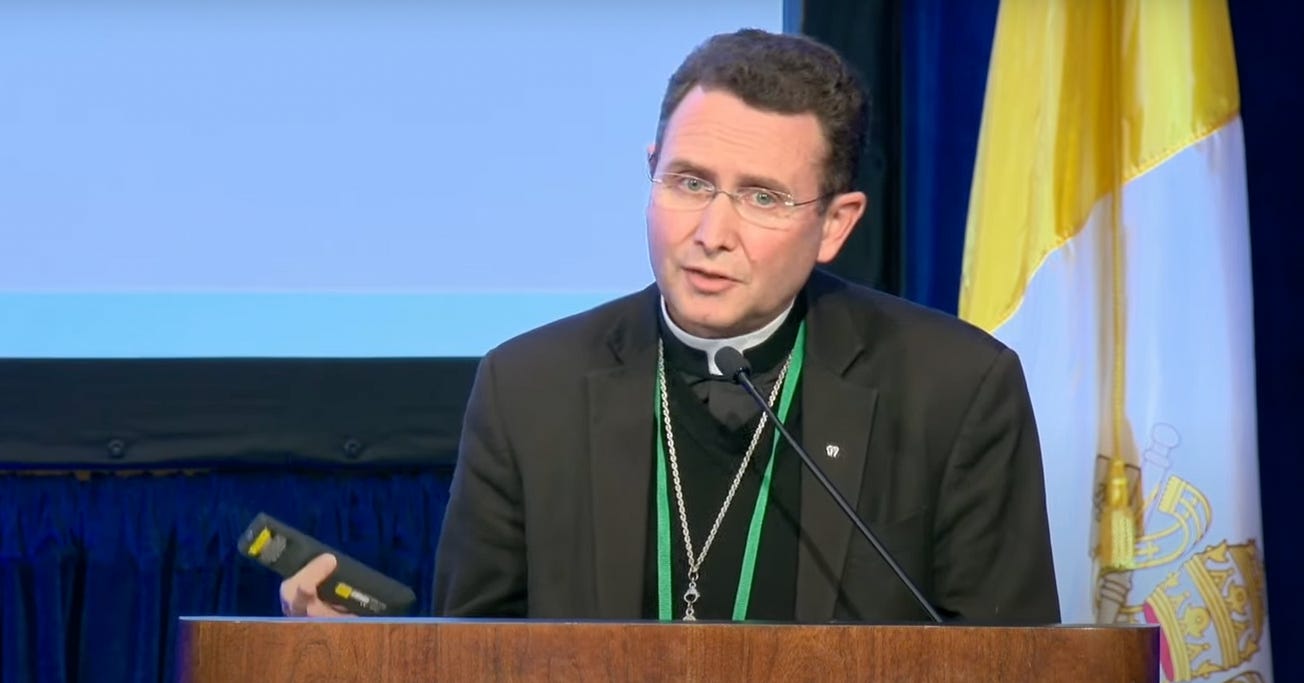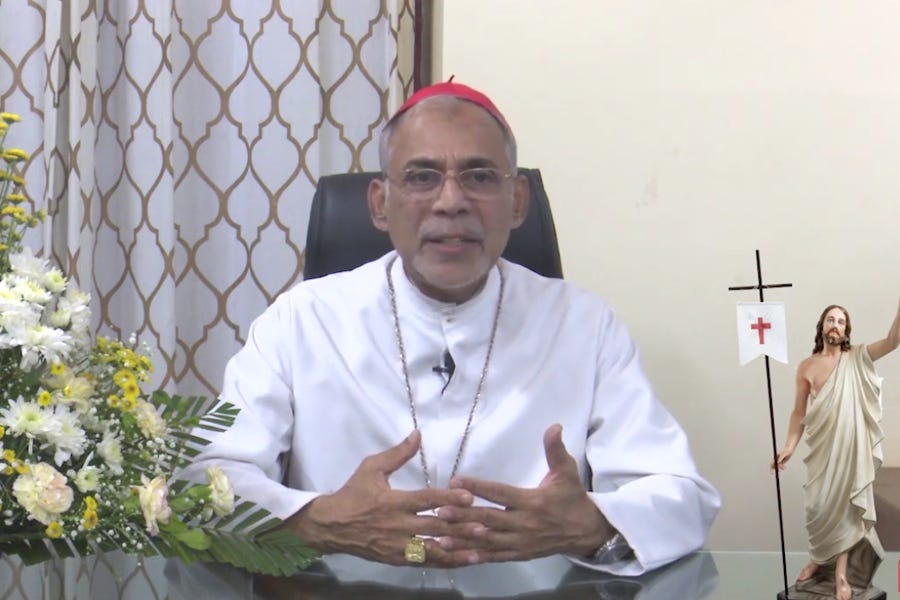Ukrainian experts say the impact of the war in Ukraine, and a deepening split between the country’s two Orthodox Churches and Moscow has the potential to reshape the global ecumenical landscape.
On the specific area of Catholic-Orthodox dialogue, experts say that opposition of the Russian Church has long been a roadblock to meaningful progress in talks. But with Moscow an increasingly isolated pole within global Orthodoxy, Ukrainian scholars say they see new possibilities for talks between Catholics and Orthodox Churches.
After February’s Russian invasion of Ukraine, the Russian Orthodox Church, and especially its leader, Patriarch Kirill of Moscow, has come under considerable international criticism for its vocal support of the invasion.
Kirill has spoken in support not only of Russian military action but also promoted the concept of Russikey Mir, the Russian worldview in which Ukraine, Russia, and Belarus form a single people, political and ecclesiastical sphere under the jurisdiction of Moscow.
The Russian patriarch’s statements have provoked considerable criticism from both religious and secular authorities outside of Russia, with the European Union proposing to sanction Kirill along with Russian state ministers, and Pope Francis telling him he must not be President Valdimir Putin’s “altar boy.”
Within Ukraine, several parishes of the Ukrainian Orthodox Church of the Moscow Patriarchate (UOC-MP) have left the Church, which is under the jurisdiction of Kirill, and adhered instead to the autocephalous Orthodox Church of Ukraine (OCU), which has been recognized as an independent Orthdox Church by the Patriarch of Constantiople and other leading Churches of the Orthodox communion.
The tensions between Moscow and its erstwhile daughter Church in Ukraine have led to a still-developing new relationship between the UOC-MP and the OUC, with the Ukrainian Greek Catholic Church, aiming to maintain relationships with both.
But experts say the isolation of the Russian Orthodox Church and its alignment with the invasion are also beginning to factor on the global ecumenical scale.
Archimandrite Cyril Hovorun, an Orthodox theologian, and professor at Loyola Marymount University, who from 2008-2009 headed the Department of External Church Relations of the UOC-MP told The Pillar that the war is jeopardizing the position of the Russian Church worldwide, where it is an active participant in various ecumenical structures, in particular the World Council of Churches.
“Now, the question of the ROC membership in these structures is being discussed,” he said.
“The 11th Assembly of the World Council of Churches will be held soon, and this question will be very acutely raised. The exclusion of the ROC from the ranks of this council and other ecumenical organizations is being discussed, and the ROC is now actively working to prevent its exclusion. There is a debate around this, which will obviously change the landscape of the global ecumenical movement."
Hovorun said that the ROC now understands its decades-long policy of relative isolation from other Churches has gone too far and is trying to rectify the situation.
"Before, they tried to dictate their terms and boycotted bilateral dialogues because of the presence of Constantinople and other [Orthodox] Churches that recognized the OCU.”
“Now they are trying to stay in the organizations in which they participate. Recently there was a meeting of the Inter-Orthodox Pre-Assembly Consultation of the World Council of Churches in Cyprus, and a delegation of the ROC was present there,” Hovorun noted.
“There were also representatives of the Churches of Constantinople, Alexandria, Greece, and Cyprus, with all of which the ROC has broken off relations. And they took a constructive position and were ready to cooperate. This demonstrates the ROC's desire to remain in these international ecumenical structures at all costs, even sacrificing its previous decisions and broken relations.”
The Russian Church’s newfound desire to engage only goes so far: while the ROC participated in the Inter-Orthodox Pre-Assembly Consultation of the World Council of Churches, they ignored the May meeting of the coordinating committee of the Joint International Commission for Theological Dialogue Between the Catholic Church and the Eastern Orthodox Church, which was held in Crete.
Rev. Iwan Dacko, who represents the Ukrainian Greek Catholic Church on the commission, told The Pillar that Russian aggression, political and ecclesiastical, undoubtedly affects the tone of the commission’s work.
“When I asked Cardinal Edward Cassidy in 1994 why Catholics are always looking towards the Moscow Patriarchate in the ecumenical dialogue, he said ‘My dear Ukrainian friend, you don't know one thing, which in Italian is called Il fascino di Mosca – the charm of Moscow.’ And it is still so to this day, though significantly lessened,” Dacko said.
“However, the war against Ukraine is sobering people in the Vatican. Now both representatives of the Catholic world and the Orthodox world are saying that it is shameful what Kirill is doing."
According to Dacko, the commission made important gains in Crete, completing revisions of a draft text entitled “Primacy and Synodality in the Second Millennium and Today.”
But the meeting was not without frustrations.
"I came back from the meeting with a heavy heart,” Dacko said. “And all the Catholics felt it.”
“The situation is serious,” Dacko said.
“Sometimes I think we Catholics are closer to some of the Orthodox than the Orthodox are to each other. Moscow has driven a wedge between the Orthodox, and this has been going on since 2016 when they did not participate in the Pan-Orthodox Council. Then Constantinople granted autocephaly to the OCU. Now they [the Moscow Patriarchate] are influencing other Churches.”
“At the meeting of our coordinating committee, there was not a single representative of the Slavic Churches. Not a Serb, a Pole, a Czech, or a Slovak. In Moscow, they believe that this Orthodox-Catholic dialogue is being conducted only to assert the primacy of Constantinople, and that by supporting the Patriarch of Constantinople, the Catholics will later find common ground with him and proclaim a new union. Do you know how the word ‘union’ sounds to Orthodox ears?”
Dacko said that the Greek Orthodox, for their part, “feel confident and say that they will not pay attention to Moscow.”
“The Greek Orthodox world has condemned the ideology of the ‘Russian world.’ So there is a lot of hope. If everything depended on Patriarch Bartholomew and Pope Francis, they could reach the restoration of the communion. Perhaps even before 2025, when it will be the 1700th anniversary of the First Ecumenical Council. Everyone favors continuing the dialogue: Greeks, Albanians, Romanians, but the problem is with the Slavic world.”
Thinking about the future of Orthodox-Catholic dialogue, Dacko said he hopes that in the future the OCU can be included, bringing an essential voice to the commission from the Slavic Orthodox world currently represented only by Moscow’s boycott.
"We have a gentlemen's agreement that the sides do not interfere in each other's internal affairs,” Dacko said.
“But on the Catholic side, there are no reservations about the presence of the OCU at meetings. The decision is on the Orthodox side. If Patriarch Bartholomew included them in the work of this commission, there would be no reservations from the Catholic side.”
“For my part,” added Dacko, “I have said at many meetings that it is important that the OCU is included in this dialogue. Some Orthodox representatives have told me that they (the OCU) are now an autocephalous Church and should have [its own] representatives in this commission.”
Taras Kurylets of the Ukrainian Catholic University's Institute of Ecumenical Studies told The Pillar agrees that the participation of the OCU in the International Commission could be positive, and might open up new horizons in the dialogue.
"We have our own unique experience of Christian life and ecumenical ideas. Ukrainian Christianity has something to say to the world," he said.
The only open question, according to Dacko and Kurylets, is whether the OCU have enough qualified people to participate in the commission.





